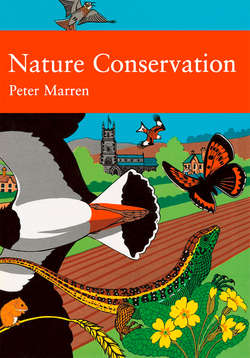Читать книгу Nature Conservation - Peter Marren - Страница 12
From data to action
ОглавлениеSurveys and data provision are meat and drink to conservation bodies. It is what they do best. But interesting and often valuable though they are, surveys and monitoring only tell you what is happening. They give a sense of the overall state of health of the patient, but are not in themselves a cure. In practice, looking after wildlife is not based on scientific rationalisation alone, but on negotiation and politics. It is rare that a conservation body has full control over a given situation, even on a freehold nature reserve. Decisions are often made in a cloud of ignorance, or in a spirit of compromise with more powerful interests. Indeed, conservation in practice is to a large extent to do with quarrelling. You make the best case you can, you cite your legal and moral rights, you appeal to the more important party’s better nature. Then, often with the mediation of a third party, you reach the best deal you can, with or without bitter words and recrimination.
‘Phenogram’ of the red admiral butterfly from The Millennium Atlas of Butterflies, plotting latitude at 100-kilometre intervals against months, forms a ghostly outline of Britain. (From Butterflies for the New Millennium survey organised by Butterfly Conservation and Biological Records Centre)
Yet ‘quarrel’ is a remarkably rare word in conservation literature. I think the first time this particular spade was called a spade was in Professor Smout’s book, Nature Contested, published in 2000. More often, like politicians, the parties prefer to sweep disagreements under the carpet, using euphemisms like ‘discussion’, ‘debate’ or even – a popular choice in the 1990s – ‘partnership’. Nature conservation is a quasi-political matter in which the arguing is done as far as possible behind closed doors, and the outcome reported to a supine press with a bland statement. Many conservation bodies have become so used to the self-censorship of uncomfortable facts that they seem to operate on a different plane of reality from the farmhouse or the estate office. Their publications reflect the power of image and presentation in the modern world. It is necessary for conservation bodies to appear slick, dynamic, successful and, above all, relevant. Where the facts of disappearing wildlife appear to contradict this image they can be distorted by the same black arts (‘let’s focus on the positive’) or used to justify an appeal for more money. Ignorance of natural history can be a distinct advantage in this world. Hence, if in the later chapters of this book, I may sometimes seem rather sceptical about the claims of the conservation industry, and its official agencies in particular, it is because I have seen something of this world from the inside. Conservation bodies rarely stoop to deliberate distortion, but their version of events can be coloured by the views of their ‘clients’ and partners, by the attitude of their political masters or by that of a mass-membership. You do not, for example, hear the RSPB talking much about cats, or the Wildlife Trusts about fox hunting. Nature conservation in a crowded island in which all land is property is bound to be difficult, even when everyone agrees that wildlife is a good thing. Conservation can be seen in different ways, depending on how you are affected by it: as a moral absolute, as a cumbersome, bureaucratic restriction, as an unjust imposition by ignorant outsiders, as a potential source of income. I think wildlife is a good thing. Indeed, in my own life I think it is probably the most important thing. I would like my country to preserve as much wildlife and countryside as possible, but without enmeshing rural life in petty restrictions. The standpoint of this book is a love of wildlife but not necessarily conservationists. In these pages you may therefore find a lot of ‘buts’. I hope it will not sound unduly negative. I feel it may be necessary. An account of nature conservation in Britain devoid of individual opinion would be a dull read, indeed not worth reading. I hope this book is worth reading.
